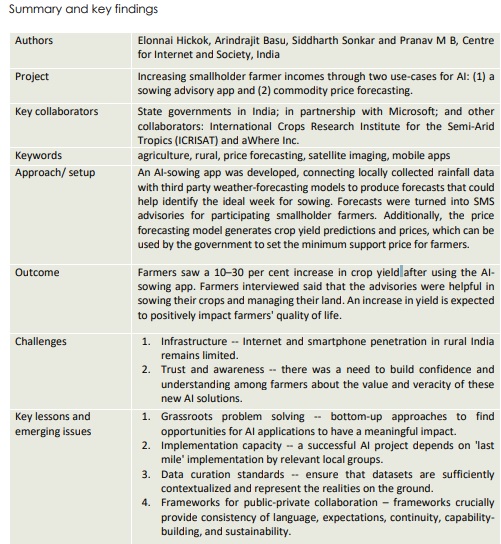Farming the Future: Deployment of Artificial Intelligence in the agricultural sector in India
-
Internet Governance
Pranav M B,Elonnai Hickok,Arindrajit Basu,Siddharth Sonkar
16 October 2019

Although agriculture is a critical sector for India’s economic development, it continues to face many challenges including a lack of modernization of agricultural methods, fragmented landholdings, erratic rainfalls, overuse of groundwater and a lack of access to information on weather, markets and pricing. As state governments create policies and frameworks to mitigate these challenges, the role of technology has often come up as a potential driver of positive change.
Farmers in the southern Indian states of Karnataka and Andhra Pradesh are facing significant challenges. For hundreds of years,these farmers have relied on traditional agricultural methods to make sowing and harvesting decisions, but now volatile weather patterns and shifting monsoon seasons are making such ancient wisdom obsolete. Farmers are unable to predict weather patterns or crop yields accurately, making it difficult for them to make informed financial and operational decisions associated with planting and harvesting. Erratic weather patterns particularly affect those farmers who reside in remote areas, cut off from meaningful accessto infrastructure and information. In addition to a lack of vital weather information, farmers may lack information about market conditions and may then sell their crops to intermediaries at below-market prices.
Against this backdrop, the state governments and local partners in southern India teamed up with Microsoft to develop predictive AI services to help smallholder farmers to improve their crop yields and give them greater price control. Since 2016 three applications have been developed and applied for use in these communities, two of which are discussed in this case study: the AI-sowing app and the price forecasting model.
Click to read the report here.